The 40 Counterculture Writers Who Most Shaped Psychedelic Zionism, Part I
My journey through outsider thought from reading Allen Ginsberg as a child in fifth grade to interviewing Noa Tishby as a journalist reporting on antisemitism today.
One of our most popular posts since I published it last year has been this one laying out many of the ideas and thinkers who have most shaped the eccentric “Psychedelic Zionist” and quirky “Counterculture Conservative” approaches driving the work of this publishing company, my journalistic reporting on antisemitism, and broader Zionist activism:
I explained in that article in response to my friend
, our poet-in-residence, who had asked for recommendations of authors to emulate in his career. That was a tricky question because I sought to offer recommendations both in the context of talented writers with good ideas, and also people actually worth emulating professionally and personally.
This list has no such compunctions and I’ve drafted it chronologically, beginning when I was 10 years old and concluding with a wonderful woman I interviewed in 2023. You’ll note relatively quickly that I take the broader definition of “counterculture.” I’m not just talking about 1960s hippies. I’m talking about any counterculture — any group of people which chooses to set themselves apart from the broader, so-called “mainstream” or whichever society surrounds them.
Thus, below and in Part II you’ll find representatives from the Beats, Christians, transgressive artists, occultists, “the Left,” “the Right,” anarchists, Jews, Israelis, criminals, drug addicts, Modernists, psychedelic shamans, and even a bit of mythology.
While this could become a very long essay laying out in greater depth the autobiographical elements — and perhaps at some point it will be — I’ll try more to keep this on a practical level, an effort which I have already failed at, the list ballooning from the original 10 on to 40, necessitating a split into two parts. So be it.
What specific ideas or lessons can we learn from these people today and apply to our own lives?
1990s
1. Allen Ginsberg (1926-1997)
While my decision to become a writer occurred in third grade, circa 1992-1993 while living in Sunnyvale, California, my journey on the outsider, counterculture path began in 1995 in fifth grade after we’d moved to Carmel, Indiana. My father put a copy of Howl in my hands and told me about the Beat tradition.
It was then that I was set on the path of radical honesty, of writing truths even if they angered and upset people. "The poet must stand naked," Ginsberg allegedly said. We needed writing that dared to say "fuck" and express raw anger at the world's injustices, that dared openness about oppressed, outsider groups.
As should be apparent at this point, I still wholly embrace this tradition and advocate for it. Speak truth, even if it destroys a beautiful lie. Smash the lies of people's idols.
Key books to read: Howl and Other Poems, Kaddish and Other Poems, 1958-1960
2. Max Lucado
In seventh grade, I became an Evangelical Christian, horrified by the theological belief that all non-Christians—and most Christians too—would go to hell, because they had not “accepted Jesus Christ as their Lord and Savior, committing themselves to the Kingdom of Mercy.” If a person did not pray that special prayer, they would go to hell forever. If they did, then nothing they could ever do would result in eternal punishment. Jesus the buddy, grinning as he hands you the golden ticket to heaven. But, oh, you have to ask for it! As my youth minister had explained to me at the time, “God is throwing a great party in heaven. You’ve just got to RSVP!”
I would only remain in this Evangelical counterculture for a few years, and much of the roots in my escape came both in the Ginsberg radical honesty tradition, but also because I came to see the hypocrisy of most Christians. Max Lucado's book Just Like Jesus made a huge impression on me. As did the practice of wearing and distributing "WWJD" bracelets. Being a Christian meant trying to emulate Jesus as much as possible.
But I soon found that most Christians didn't do that. Their religion was based more in Paul and the institutionalized theology of "the church," in an image of a Christ, rather than Jesus, Moses, and the text of the Bible. They claimed to believe that most of the world was damned but they then did little about it, too busy devouring donuts after the pastor’s sleep-inducing sermon, too excited by playing games in the church’s indoor basketball court.
Would Jesus shoot a lay-up or a three-pointer? Or are his wrists still too sore from a hard day’s work to dribble the fucking ball?
Thus, though I kept the love of Jesus and the call to emulate him, in a few years the journey for a new counterculture home began anew.
3. 4. Chuck Palahniuk and Irvine Welsh
In a sense, I returned to the Ginsberg, outlaw literary tradition, roughly 2000-2001, my junior year. I sought to find other writers who dared to tell the truth about the world. What writers would shock with profanity, violence, wild sexuality, and a rejection of the so-called "mainstream"?
Palahniuk and Welsh remain the ones who made the strongest impressions and which I still appreciate the most at a literary level. However, there were others who also taught me to innovate with style and to tell the stories of those who exist on the margins. Hubert Selby, Jr., Bret Easton Ellis, William S. Burroughs, J.G. Ballard, Jean Genet, and Jack Kerouac remain on the shelves after all these years, still not fully explored or yet properly understood.
Key books to read: Fight Club, Survivor, Invisible Monsters, Trainspotting, Marabou Stork Nightmares, Filth, Requiem for a Dream, American Psycho, Naked Lunch, The Atrocity Exhibition, On the Road…
5. Hunter S. Thompson (1937-2005)
Thompson was one of those provocative, outsider, outlaw authors who resonated with me as a rebellious, "angry young man." And his tradition of "Gonzo Journalism" is one which I now embrace and advocate for other writers to explore.
Drop yourself into the story, use wild, literary language, dare to tell stories of shock, write and report while drugged up.
Just please stay away from the cocaine and other stimulants! Strong coffee and Sativa cannabis in tandem work just fine here to fuel intense, fast writing!
Key books to read: Fear and Loathing in Las Vegas, Better Than Sex: Confessions of a Political Junkie
6. Alan Moore
In the period of the late '90s and early '00s, the "graphic novel" had become embraced and celebrated by teachers and young adult librarians as a way to get more students reading. “Graphic novels” — as opposed to “comic books” — were literature, not merely childish escapism. And it soon became apparent to me at the time as it still is today—that Alan Moore was the greatest of them all.
Today he remains a top literary influence, inspiring me to work across mediums, and even go into comic book writing myself.
I'll be digging into Moore much more at our
Substack soon. It’s time to really study his creative ethos and see what we can learn about it for our own fiction projects.Key books to read: Watchmen, V for Vendetta, The League of Extraordinary Gentlemen, From Hell, Swamp Thing, Promethea, Tom Strong, Lost Girls
7. Tupac Shakur (1971-1996)
The super cool Gen-Xer next door who had been my babysitter as a child turned me on to her favorite music when I was a teenager, in particular Tupac Shakur.
I've written previously about Tupac as his generation's greatest musician. I'd go a step further and say he is the greatest poet too, and belongs in this same counterculture poet-as-provocateur-position for his generation as Ginsberg did for his.
Through his artistry, the ghetto counterculture emerges, a very important one to understand and draw from today, in spite of its shortcomings and tendencies to violence. Soon I would come to understand this "black redneck" culture with much greater historical depth.
All five of his studio albums: "2Pacalypse Now" (1991), "Strictly 4 My N.I.G.G.A.Z." (1993), "Me Against the World" (1995), "All Eyez on Me" (1996), "The Don Killuminati: The 7 Day Theory" (1996)
2000s
8. Reinaldo Arenas (1943-1990)
By my senior year of high school, I had found another counterculture and a community of its participants. I worked now at Indianapolis’s most prominent art theater, Castleton Arts, thus indie/foreign/classic films entered my life on a regular basis.
The film "Before Night Falls" and then reading he books of its protagonist, Reinaldo Arenas was huge for me, as it too introduced a further counterculture - the gay world.
It was through Arenas that I came to realize I too was LGBTQ, though I felt conflicted about realizing this at first, because while much of the gay world appealed to me, much of it did not, and being with women remained more comfortable, as it does today.
But I knew that I still had a foot in that world, and would sympathize with it for the rest of my life, even if I didn't speak too much about what I regarded then as bisexuality and regard now as the broader "Queer" identity given that—were I not now engaged to a women—trans and non-binary people would be potential partners.
Now 20 years later, gay marriage legal and openly gay people throughout business and culture with little controversy, it's worth remembering that the LGBTQ world is still a counterculture, and still hated by many, particularly the so-called"Christ-followers" of the Evangelical world who have now grown as obsessed by and afraid of trans people as they once were of gay people. It’s been a generation but the rhetoric and the arguments are still the same. “The trans people are coming for your children! They’re going to destroy Western Civilization! They’re against nature! It’s all just a mental disorder!”
It's also worth noting here, that this sympathy for LGBTQ people would lay a key groundwork in my eventually shift to "the Right" and focus on fighting Islamist groups. I knew that such countries would execute people like me.
Oh, and Arenas’s prose is fall-out-of-your-chair level-amazing.
Key books to read: Singing from the Well, Old Rosa, Before Night Falls: A Memoir, The Color of Summer
9. Robert Anton Wilson (1932-2007)
In my sophomore year of college, circa 2003-2004, I bought a DVD which would change my life more profoundly than perhaps any other - “Disinformation: The Interviews,” a 2 disc-set featuring 4 episodes of a program promoted as a “punk rock 60 Minutes.”
“Disinformation” which featured weird stories about conspiracy theories, strange artists, and subcultures — all presented in a slick, polished fashion as though it was just any other news program
It was the second disc that really changed everything for me. Because it featured speeches from figures who would reshape the direction of my life.
Robert Anton Wilson has become in the last 20 years the primary literary, intellectual, and philosophical influence on my career. I have collected all of his books, including ones where he was just a contributor or wrote a foreword.
His philosophy of mystical agnosticism, his advocacy of doubt, wide-learning across disciplines, and writing that runs the gamut from fiction to nonfiction, essays to poetry, satire to seriousness, informs what I do today. Much more to come further about what can be learned from him. For now, begin with his best book, my favorite book, Cosmic Trigger: Final Secret of the Illuminati.
Other key books to read: Prometheus Rising, The Illuminatus! Trilogy, Ishtar Rising, Schrodinger’s Cat Trilogy, Masks of the Illuminati, The Illuminati Papers, Everything is Under Control, and Sex, Drugs, and Magick
10. Doug Rushkoff
Another speech on that second disc featured
, who I regard as the RAW of his generation, another whose books I have aimed to collect in full — some need to be replaced since I gave them to friends.Doug's approach to media theory has profoundly influenced my writing and path forward. Each one of his books over the last 20 years since I met him in 2005 when he came to speak at Ball State, has felt like it's put me ahead of the game for years. I could see the directions media, technology and culture were going and adjust my career and writing accordingly. He too, I will continue to write on much more in depth.
His approach to Judaism was also transformative to me and laid the foundation for my Zionist activism. Start with his books Nothing Sacred and the accompanying comic book series Testament and then you'll want to read everything he's written.
Other key books to read: Survival of the Richest, Team Human, Present Shock, Throwing Rocks at the Google Bus, Media Virus! Program or Be Programmed, and Life, Inc.
11. Grant Morrison
The third speaker at the DisinfoCon who transformed my life was Grant Morrison, another comic book writer, and who also like Moore and Rushkoff, named Wilson as a foundational influence.
Morrison was a key writer for me in his promotion and introduction of “sigil magic” as well as identifying his series The Invisibles as a "hyper sigil." Media could be magical. Spelling a word is the same as spelling a magick spell.
I began experimenting with "sigil magic," which is a form of "chaos magic" and found that it worked. That was the beginning of my engagement with Magick and "the occult" and my experiences have confirmed its utility ever since. These techniques do "work" to induce consciousness change in oneself and others, as well as to cause some really weird things to happen.
12. and 13. Kenneth Anger (1927-2023) and Aleister Crowley (1875-1947)
A fourth speech on the DVD featured occult filmmaker Kenneth Anger, a lifelong devotee of Crowley and his teachings, who came out holding Crowley's magnum opus, Magick Book 4, which essentially has everything you'd need as an occultist, a book that takes decades to digest.
Now some people here may see the contradiction - how can I embrace both the Judeo-Christian traditions, as well as the Western Occult Tradition? Aren’t Anger and Crowley “satanists”? Well, not really — all that stuff is sort of just a joke to tease and scare people.
It took me some time to understand the relationship between these seemingly conflicting traditions. But soon, digging into Crowley enough - it emerged. The Western Occult tradition derives from Kabbalah and broader Jewish mysticism. It is the foundation that everything else is built on, and Crowley's primary teaching really isn't much different than what Jewish mysticism attempts to achieve - the invocation of one's Higher Guardian Angel, for the purpose of gaining wisdom and transformation through union with God.
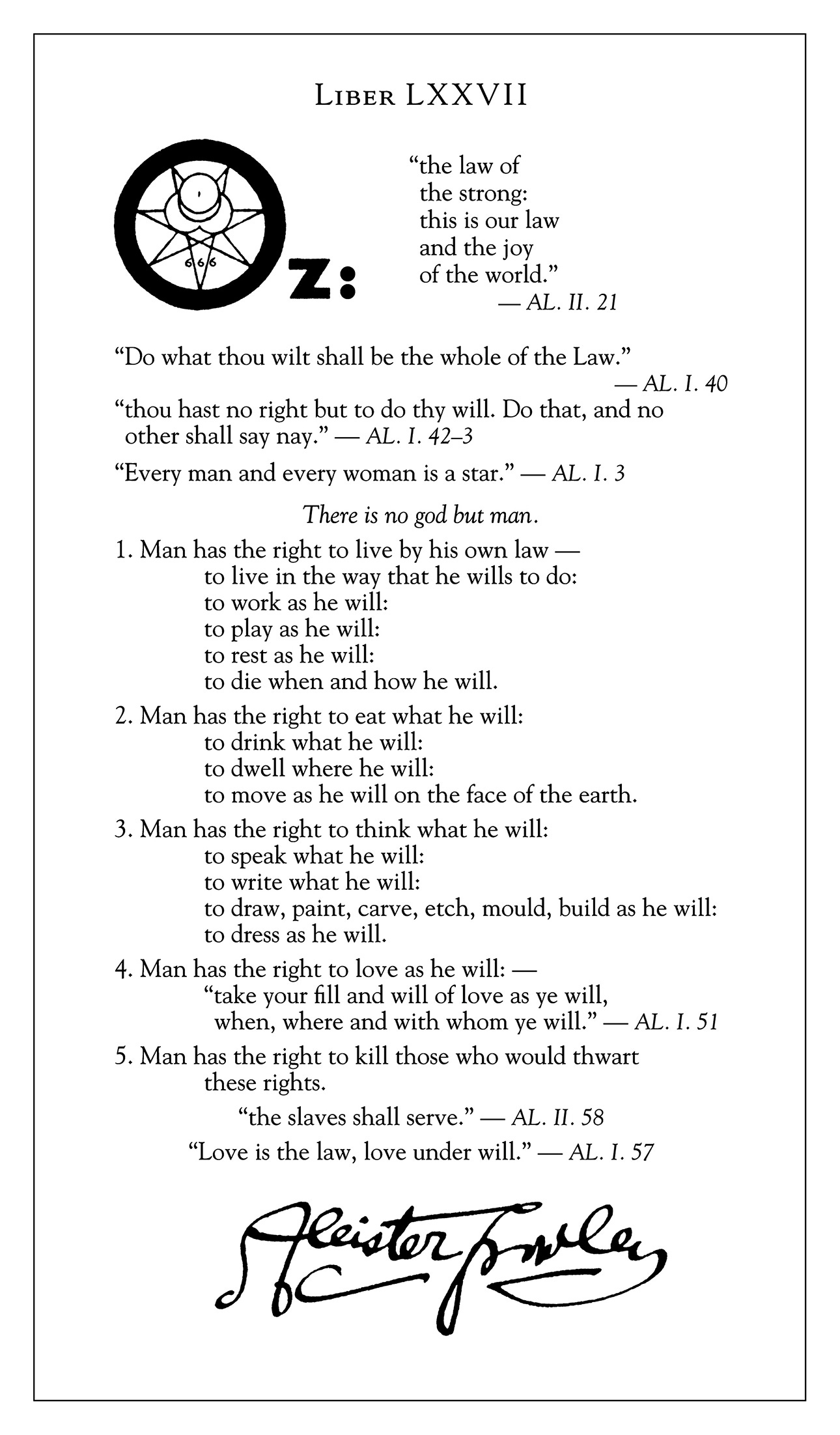
14. Virginia Woolf (1882-1941)
In college the authors who would further transform my approach came in my literary classes too. In particular, I had a great professor who specialized in British modernism, the period from 1890-1940. Here I found another counterculture, the literary modernists who innovated new, transformative styles.
It was here that I fell in love with Virginia Woolf, Mrs. Dalloway being the first "classic novel" I ever read that within the first pages revealed to me why it was so amazing.
I soon came to identify with this approach and tradition, of getting into the characters' heads and presenting a subjective approach to the world, rather than the more boring, omniscient narrator of the Victorian period of literature which I still do not really care for. Fuck Charles Dickens, fucking antisemite. Getting paid by the word—what bullshit.
Woolf is another author who I now have a full bookshelf of her writings but still have many more to collect and much to explore. She is another author with art to feed for a lifetime.
Other key books to read: To the Lighthouse, Orlando: A Biography, The Waves
15. James Joyce (1882-1941)
Joyce was the other Modernist writer who deeply resonated with me, further because RAW celebrated and taught him.
For me, Ulysses is the greatest novel of the 20th century, perhaps the greatest period. From it I further learned the lesson of subjectivity in literature, as particularly captured through differing styles being employed together. Multiple worldviews are needed to grasp something as seemingly simple as just one day in Dublin in 1904.
Read all of his books: Dubliners, A Portrait of the Artist as a Young Man, Ulysses, and Finnegans Wake
16. and 17. The Marquis de Sade (1740-1814) and Noam Chomsky
While I would come to embrace the Western Esoteric Tradition and British Modernism for the rest of my life, two other countercultures I sampled during my college years would end up in my life’s waste bin: nihilistic libertinism and far-left anarchism. It seems appropriate to consider them both together as they have comparable roots in godless pagan idolatry and thus I learned similar lessons from each.
The novels and philosophy of the De Sade depict the end point of Enlightenment philosophy, the doctrines taken to their ultimate extreme and conclusion. If God does not exist, if all we can know is what science and our senses reveal, if no form of moral value system possesses any authority, then nothing can restrain a man from falling to his lowest natural instincts.
Why not indulge in every sexual fantasy, why not inflict whatever pain one wants?
It was around about this time — as I had begun my explorations into the occult through Wilson, Morrison, Anger, and Crowley — that I came to know and meditate on the apocryphal last words of Hassan i-Sabah, mystic founder of the Muslim sect the Nizari-Ismailis and its military order the Assassins:
“Nothing is true, everything is permitted.”
In the straight forward reading of the phrase, it becomes a license to do whatever one wants, as though that was the deep, ultimate secret of the world. Eventually I came to understand that it makes more sense when framed with a bit more context:
“WHEN nothing is true, THEN everything is permitted.”
Value systems which reject the idea of truth lose their ability to stand on anything. Likewise, simply ignoring truth creates a moral chaos too.
And chaos is what I would come to understand lied in the dark heart of this other huge thinker who I grappled with during my college years.
Just as I had clung to Evangelical Christianity during my early teens, so during my early twenties did the far left foreign policy dogmas of Noam Chomsky resonate with me.
It was 2003-2004 and the Iraq War raged — the defining issue of our time, what some of us “on the Left” saw as a new Vietnam War, a war of choice pursued for malevolent, imperial, greedy ends. “No blood for oil!” My sophomore year I decided to switch the cultural focus of my weekly op-ed column in The Ball State Daily News over to leftist anti-war, Bush-bashing polemics. And in doing so, this meant I needed to begin searching for ideas and facts to back up my weekly arguments.
This meant a subscription to The Nation, regular trips to the book stores to dig through the politics section, and prodigious consumption of the emerging political blogosphere. It would also eventually lead me into choosing political science as a second major. (I had initially planned just to minor in it but it was not very much more to just get a second major instead, so that’s what I did.) And that, of course, laid the foundation for my political writing, editing, researching, and activism career of the last 15 years.
And so it was in this context that I drank in the Chomsky critique not just of the Iraq War, but of the entirety of American history and really of all Western civilization. In Chomsky’s analysis, the Iraq War was not just about the particular circumstances of that war and those choosing to engage in it.
No, for Chomsky it was just one more in the endless string of examples of how America and “the West” writ large were inherently evil, oppressive, un-democratic, take your pick of whatever epithets you’d like.
And — as I wrote about just recently — there’s some merit to this anarchist critique. Yes, there is some pretty overwhelming brutality behind the creation of our nation and the Western imperial aims behind it.
However, there’s a huge blindspot that Chomsky and his far-too-numerous followers fail to even consider, as it makes their entire approach collapse.
One word: CULTURE
If you reject the cultures which make up Western Civilization, then which do you choose instead?
Chomsky made a career out of laying out in painstaking detail the sins of America and the West, of the wealthy and the influential. But where on the shelf will one find the sins of “the people” — the normal, non-wealthy people who commit great cruelty too in our everyday lives? Chomsky naively thinks that “the people” are somehow morally superior to “the elites” he blames for all the world’s ills.
Where will one find his critiques of America’s and the West’s enemies? Are they not far worse than America?
It’s an easy game to point to the horrible things that America did in its decades of fighting to ultimately win in the Cold War. It’s much more work to ask seriously why the men in power chose to do them, to put oneself in their shoes and look at the nuclear threats, the espionage threats, the cultural subversion threats the Soviet bloc fueled.
I did not realize at the time that I embraced leftism just how much the ideology conflicted with a truthful understanding of the role culture plays in a society’s success or failure. Could a left-wing, socialist, redistribute-the-wealth approach really alleviate the problems of poor cultures?
Or were the problems bigger than something the government could fix?
Key books to read: don’t waste your fuckin’ time with either of these authors unless someone is paying you to do so. They are boring, repetitive, and not all that compelling of prose stylists.
18. Thomas Sowell
In the years after I graduated from Ball State in 2006, I gradually began to doubt my way out of my leftism, eventually embracing the “libertarian-conservative anti-Communist” intellectual-activist tradition. A number of professional experiences, personal relationships, and compelling arguments contributed to this Left-Right journey — and I’ll lay them all out at some point in a future essay — but the one that stands out today as most important was the book Black Rednecks and White Liberals by Thomas Sowell.
The book’s lead essay is about how what is often called “authentic Black culture” does not really come from Africa nor was it unique to Black Americans. He lays out the history of “cracker culture,” aka “redneck culture” which he traces to the Scottish Highlands, a warrior culture.
Sowell then deftly argues that the innate cultural patterns from centuries ago are the real reason for why both many poor people of both white and black skin remain “stuck in poverty.” They choose to embrace cultural ideas which actively harm them and keep them in poverty. In these arguments I could see my own extended family who also embraced the culture. The insight clicked — so that’s what my mother had fled from as a teenager, a destructive, cruel, ignorant culture of violence.
Once this insight about some cultures producing wealth and happiness while others yielding misery and suffering, then so many efforts to try and solve “social problems” — really cultural problems — from the top-down fall apart. Just giving people money and other “social services” is not going to fix the problems in their life.
This insight further applies on the foreign policy front too: not all nations possess equally moral, positive cultures. Many cultures around the world — like Russia’s as I’ve argued previously — are just terrible. And we are morally obligated to oppose their imperialism, even though it requires our own less-terrible imperialism.
And so Dave the socially conservative, Chicago School libertarian, hawkish anti-communist emerged fully in 2010.
Key books to read: Black Rednecks and White Liberals, Basic Economics: A Citizen's Guide to the Economy, Marxism: Philosophy and Economics, Inside American Education,
2010s
19. Frank S. Meyer (1909-1972)
Upon becoming an ideological conservative and now tasked with editing full-time a cable news criticism blog from a conservative perspective, just as I had gone searching for left-wing arguments for my college columns, now I sought out right-wing arguments for my blog posts. I had to choose which right-wing thinkers to embrace and which to discard.
It did not take long to discover that there were contradictory and rival movements on “the Right.” To embrace one thinker fully meant another had to be discarded. Neo-conservatives or paleo-conservatives? Chicago School libertarianism or Austrian School libertarianism? Whittaker Chambers or Ayn Rand? (Spoiler: they’re both overrated and you can skip them.)
Or might it be possible to take two of differing tendencies and balance them out against one another? Why can’t we have a healthy balance of ideas rather than going full hog on any one activist objective?
It turned out that another ex-leftist, the National Review editor/columnist Frank S. Meyer, had figured this out back in the 1950s and 1960s, finding a synthesis of “traditionalism” (what we call social conservatism now") and “individualism” (what we call libertarianism now). These two tendencies balanced together with a hawkish, anti-Communism dedicated to defeating the USSR serving as a bridge in the middle between them, creating what became known as “the conservative mainstream.”
This is the form of conservatism that Ronald Reagan embraced, he said so himself, citing and praising Meyer more than a decade after the gifted writer’s death. What Meyer wrote, William F. Buckley, Jr. popularized, and Reagan implemented as policy.
In becoming a conservative activist I came to see Meyer as a career model of sorts and sought to emulate his strategy of fusing together different philosophies and causes. The approach seemed to have worked then. The ideology Meyer laid out came to be embraced by a man who became president and then implemented policy based on it that resulted in the defeat of the Soviet Union and the end of the Cold War.
All being traced back to an ex-Communist writing columns and editing the book review pages of a little magazine called National Review. I wanted to do the same thing but with blogs and against radical Islam as the opponent in place of the Soviet Union.
And it just so happened that there was a man 15 years older than me who was trying something similar. I would get to meet him, write for his “Big Hollywood” blog, and thoroughly embrace the maxim he popularized: “Politics is downstream from culture.”
Key book to read: In Defense of Freedom: A Conservative Credo
20. Andrew Breitbart (1969-2012)
When I became a conservative media activist 15 years ago one of the obvious problems that I had to confront was that I had no interest in discarding the strong influence of the first 15 people on this list.
I had joined “the conservative movement” or “the Right” primarily because I had come to understand the threat of radical Islam, and understood it as an enemy to American freedom comparable to what the Soviet Union had represented.
So I sought to create a “countercultural conservatism” in which I refashioned many of the ideas and themes above to explain how they could be employed toward the conservative ends of defeating America’s enemies and correcting “social problems.”
In pursuing this, I already saw one larger-than-life character living exactly that: the late, great Andrew Breitbart.
Andrew was fearless. Having also emerged out of a left-wing life, he was not afraid of those in media, culture, and politics who still held the views he and I had rejected.
I’ll always remember and cherish this legendary confrontation between him and the fucking evil antisemite Max Blumenthal:
I have much more to say about Andrew and how much he meant to me, how he influenced so many of us before his death, how he left such a gaping hole in conservative media that was soon filled with the fucking evil racist bullshit of Steven K. Bannon and Milo Yiannopoulos.
But, I’m sorry, it’s still strangely raw to think about, to dredge up the memories of him during 2010 when I met him, then through until his death on March 1, 2012. He’s the first person on this list who I both met and who has since died. And dwelling on it as much as I have just now has literally made me start crying.
Key book to read: Righteous Indignation: Excuse Me While I Save the World!
That’s probably a good place to wrap this part up for now. There are three more authors in this category of real-life deceased mentors too on the second part of the list and maybe I’ll be able to get through writing about each of them without breaking down…






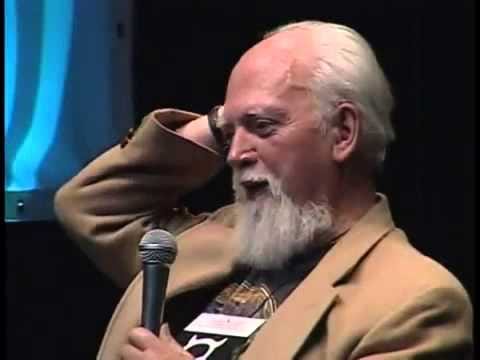



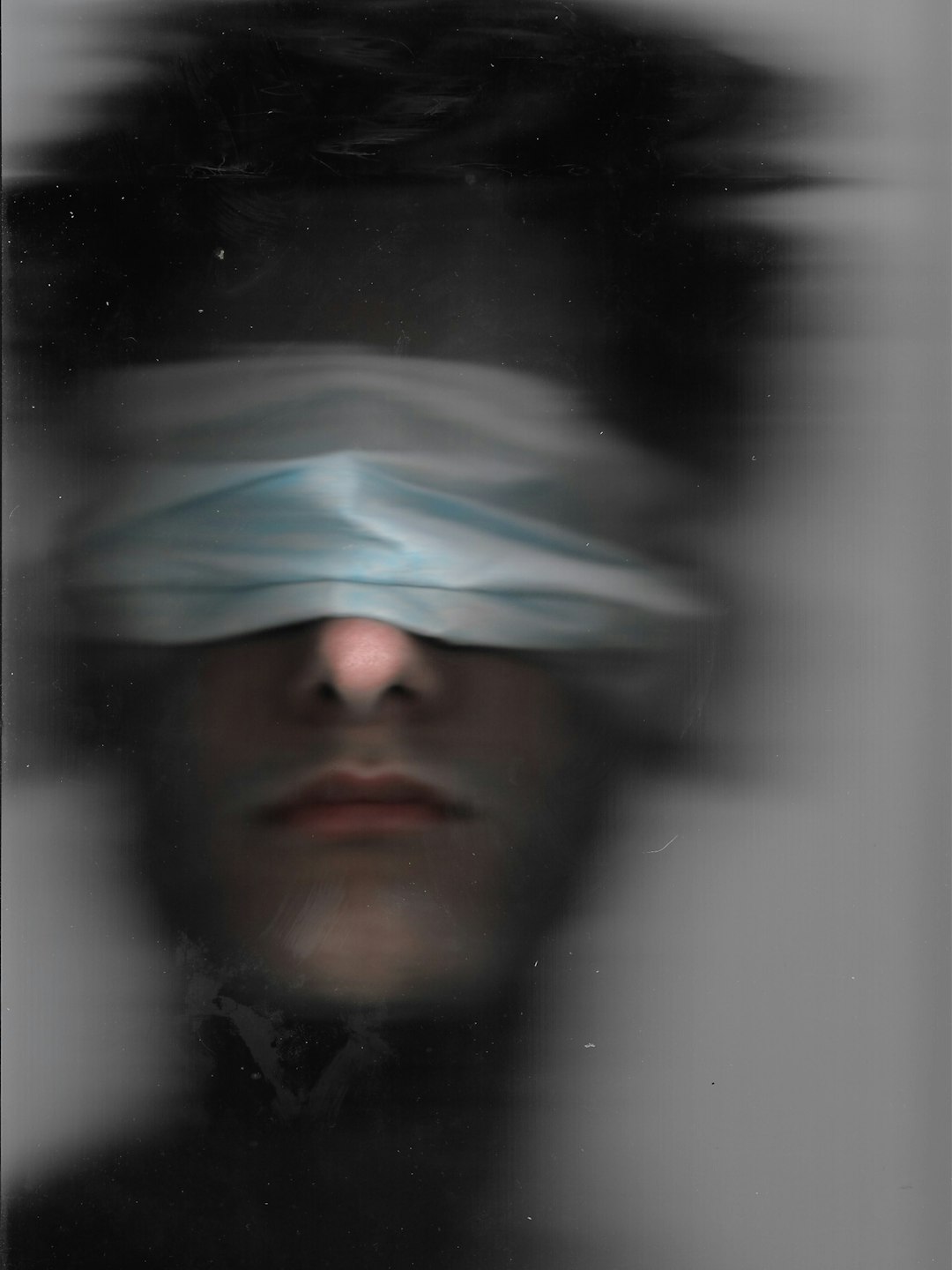
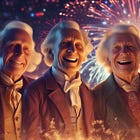
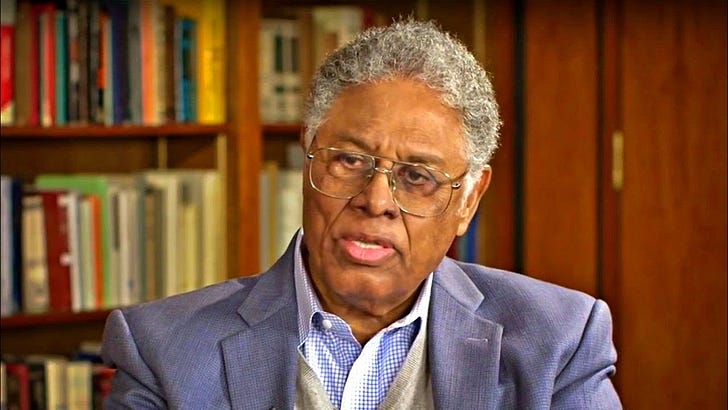








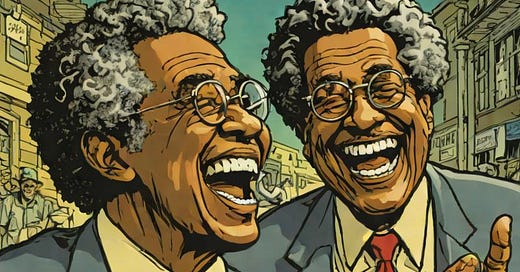

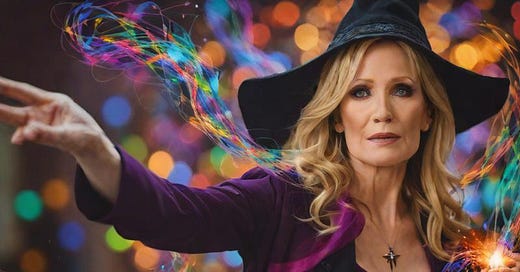


You know what's funny. The Iraq War era was a defining time for both of us politically. We were both in college it seems. At the time before the Iraq War you were liberal. In the early 2000s I was conservative. On a side note I also liked Sowell back then much more than now(I still do like some of his points of view.)
Anyway. My reasoning for being against the Iraq War was and I believe I was right(you may disagree.) Was that US hegemony was good. US hegemony created a more peaceful world. That the only way this could be interrupted was the US spending too much political capital on a stupid war and alienating their allies and citizens. This was informed by this is happening during Vietnam. That war was widely seen as an example of military over-reach and broke the trust in US institutions for a long time. To some degree the effects are still felt.
My reasoning was that Iraq wasn't a threat to the US, there was a high likelihood of Iran benefiting from regional instability and it would force the US to get involved with illiberal middle eastern regimes and bog the US down indefinitely. That the US should save its political capital for intervening in a more serious infraction like say Russia invading another country or a civil war in Syria that might create a refugee crisis.
Anyway I was looking for worldviews and reasoning that fit my newfound ideological curiosity since in my eyes the American right was going off the rails. I came to Chomsky. Oh boy I always disliked him and his foreign policy opinions. He was an America hater. I love my country and my criticism has always been from that perspective. Chomsky held water for illiberal regimes constantly, making excuses for them while coming to the more uncharitable conclusions regarding the US. This man blames the US now for the invasion of Ukraine and has in the past made the blunder of supporting Pol Pot. The Pol Pot part was known in 2003 and was a huge reason I was very critical of his writing from the start.
Through Iraq War protests I found out about all sorts of fringe conspiracies, even early anti-vaxx stuff, but also 9/11 conspiracies. For years I felt like I was on a political island with my views. The Right being gung-ho about war and the left being riddled with populist nonsense, fringe academic theories and conspiracies. Of course things have changed since the days of George W. Bush and the American right has found new profound ways to alienate me, that are different than before. Meanwhile Liberals have to constantly hold back the "Looney Left" themselves.
It took me a while to realize I was a milquetoast moderate liberal, with honestly very boring views and that there were many, many people like me. It's just that often divergent opinions get a lot of airtime and take up a lot of space.
Allan Ginsberg, Jersey Boy. Paterson. Greatness is in the water we drink.